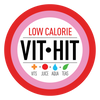Flexitarianism;
You may have noticed as of late, that many supermarkets now offer a wider variety of plant based, vegetarian and vegan products for consumers. The growth of such categories can be directly attributed to the spike in consumer interest diets more focused on plant based items. This trend is likely linked to the public's increased awareness of the ethical implications of consuming certain foods, and the environmental impact associated with consuming large quantities of meat that are produced unethically. Thus, the flexitarian diet has emerged, predominantly in Western countries and its popularity doesn’t appear to be slowing anytime soon.
So, what is flexitarianism?
According to the World Health Organisation (WHO), the flexitarian or semi vegetarian diet involves consuming foods that are predominantly vegetarian but includes some meat, dairy, poultry and fish on occasion or in small quantities.
The popularity of this diet can partly be attributed to consumers' increased awareness of health and macronutrient functions within the body. The WHO recommends consuming a diet low in salt, saturated fat, added sugar and high in plant-based foods as part of a healthy lifestyle. Reductions in diets that are rich in saturated fat, salt and added sugar are recommended and can aid in protecting against the onset of non-communicable diseases (NCD) and early mortality. The 4 main NCDs are cardiovascular disease, cancer, diabetes mellitus and chronic respiratory disease. However, it is important to note that strict diets such as vegan diets can be harmful if proper supplementation is not adhered to and can result in micronutrient deficiencies, in particular, vitamin B12, vitamin D and iron.
Flexitarianism offers a good alternative for individuals looking to reduce their consumption of meat and focus more on plant based diets. Flexitarian diets allow individuals to still consume essential micronutrients such as vitamin D and vitamin B12 which can only be derived from animal sources. Continuing to incorporate dairy into your diet will also prevent individuals from bone related diseases through consumption of calcium rich foods.
What is all the fuss about?
Retailers and food manufacturers around the globe have seen a surge in new product developments in the area of plant based products in recent years.In particular, the onset of the Covid-19 pandemic has sparked a heightened interest and awareness amongst consumers surrounding the provenance of food, the environmental impact that food is having and the impact that food is having on health. This has thus impacted what food is being purchased and what food categories are seeing a decline.
Between 2020 and 2021, the number of vegans worldwide doubled to 3%. The implications of this mean that friends and families of those that are vegan will also adapt their diets to become semi - vegetarian/vegan or flexitarian. Mintel reported that in 2021, 50% of British people were consuming plant based alternatives.
How can you implement a flexitarian diet?
The ethos of flexitarianism is that individuals will consume more plant based foods instead of meals focused around meat. A good place to start is incorporating one to two plant based meals into your diet each week. This means that instead of consuming meat 7 days a week, now you may only have meat 5 days a week. As your flair for plant based meals increases, overtime you can reduce your consumption of meat and animal products further.
Simple practises you can implement include:
- Choosing snacks that are focused around nuts and seeds
- Drinks that are vegan, can help to increase your intake of plant based foods.
VITHIT drinks are 100% vegan and are fortified with 8 essential vitamins to meet your RDA.
Our advice is to find a diet that makes you feel your best and that you feel is easiest to incorporate into your daily lifestyle.
Remember: Always consult your doctor before making any new dietary changes.









